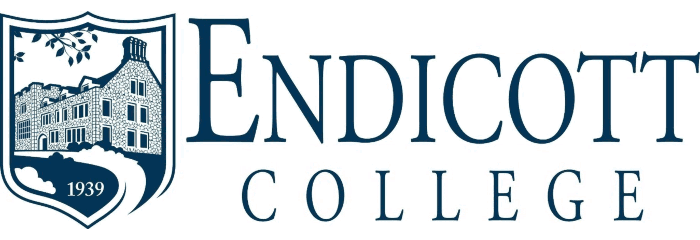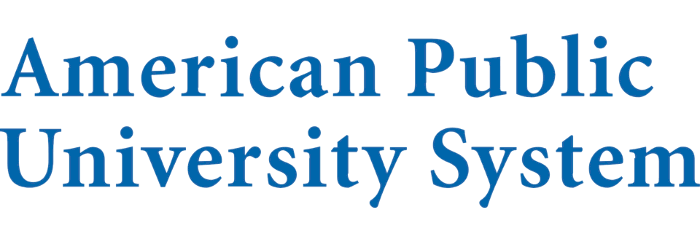An online bachelor's degree in criminal justice offers a comprehensive understanding of the American legal system, criminal behavior, and law enforcement processes. You'll benefit from courses in criminology, sociology, and forensic science. We've highlighted several online criminal justice programs you should consider.
Key Takeaways:
- Norwich University's criminal justice program earns the top spot with reported median graduate earnings of $64,050.
- Endicott College stands out with an impressive graduation rate of 78%, ranking #1 for this metric and in the top 8% of institutions.
- American Public University System is notable for the highest military enrollment, with 18,012 students utilizing the GI Bill.
Our ranking for evaluating the best criminal justice programs compares real-world outcomes of online school alumni, specifically through their salary outcomes. Programs are ranked based on a Salary Score, represented as a letter grade, derived from alumni earnings data from the U.S. Department of Education's College Scorecard. For more information, view our methodology.
2025 Best Online Criminal Justice Degrees
#1
- Salary Score: A+
- Median Earnings: $64,050
- Online Enrollment: 1,075 enrolled
- Annual Tuition: $45,340
Online degree: Bachelor of Science in Criminal Justice
Why we like them: Norwich takes the top spot with reported median earnings of $64,050. We also appreciate the 11:1 student-faculty ratio across all programs, which offers personalized academic support. Norwich's Bachelor of Science in Criminal Justice is a fully online program, accredited by the New England Commission of Higher Education. Students have the flexibility to begin the program at multiple start dates throughout the year and can transfer up to 90 credits, potentially completing the degree in under two years. This program not only covers essential topics in law enforcement and policy development but also offers specializations like intelligence and security management.
Key Metrics:
- Salary Score: A+
- Median Earnings: $64,050
- Financial Aid Recipients: 100%
- Avg. Aid Package: $38,481
- Avg. Graduation Rate: 61%
- Retention Rate: 74%
- Recommend Rate: 77%
- School Type: Nonprofit (Private)
#2
- Salary Score: A+
- Median Earnings: $64,015
- Online Enrollment: 2,834 enrolled
- Annual Tuition: $24,400
Online degree: Bachelor of Arts in Criminal Justice
Why we like them: With graduate median earnings reported at $64,015, Concordia's program is in the top 2% for earnings potential. This is complemented by extensive financial aid support, with an average package worth $16,487, which positions the school in the top 24%, ensuring that education is accessible to a broader range of learners. You're required to complete 120 credit hours, including 45 in major-specific courses, within as few as 2 years. Unique tracks include the MN POST Licensing Eligibility, preparing you for the MN POST Licensing Exam, and the Non-POST CJS Track, which suits those in non-law enforcement roles or current police officers.
Key Metrics:
- Salary Score: A+
- Median Earnings: $64,015
- Financial Aid Recipients: 100%
- Avg. Aid Package: $16,487
- Avg. Graduation Rate: 51%
- Retention Rate: 61%
- Recommend Rate: 73%
- School Type: Nonprofit (Private)
#3
- Salary Score: A+
- Median Earnings: $63,372
- Online Enrollment: 396 enrolled
- Annual Tuition: $30,000
Online degree: Bachelor of Science in Criminal Justice
Why we like them: Marian distinguishes itself with a median earnings score that ranks in the top 2% for students graduating with a criminal justice degree, suggesting that you may expect substantial financial returns upon completing this program. Additionally, the student-to-faculty ratio of 12:1 ensures you might benefit from more personalized attention, closely approaching the top 30% of programs. Marian's criminal justice program offers a comprehensive curriculum focused on law enforcement, corrections, and social and juvenile justice. The program, delivered entirely online, allows for flexible scheduling with classes beginning every seven weeks. The program includes both general education and core courses like Law Enforcement Administration and Crisis Intervention. Additionally, law enforcement professionals receive a 10% tuition discount.
Key Metrics:
- Salary Score: A+
- Median Earnings: $63,372
- Financial Aid Recipients: 100%
- Avg. Aid Package: $14,246
- Avg. Graduation Rate: 51%
- Retention Rate: 65%
- Recommend Rate: N/A
- School Type: Nonprofit (Private)
#4
- Salary Score: A+
- Median Earnings: $62,737
- Online Enrollment: 157,898 enrolled
- Annual Tuition: $9,600
Online degree: Bachelor of Science in Criminal Justice
Why we like them: Beyond earnings potential, SNHU stands out with its impressive online enrollment numbers. With nearly 157,898 students engaged in online studies, SNHU not only leads in accessibility but also demonstrates its commitment to providing quality online programs. We commend SNHU for catering specifically to military learners, with about 14,093 using the GI Bill, placing it among the top schools for military student enrollment.
The curriculum spans 40 courses, with each lasting 8 weeks. The program is designed to equip you with skills in community relations, effective communication strategies, and understanding the impact of technology on criminal justice agencies. You can choose from eight specializations, including Cybercrime, Homeland Security & Counterterrorism, and Human Services & Advocacy. The program also includes an embedded communication certificate to enhance your qualifications. Additionally, some credits can be awarded for prior learning in certain law enforcement training programs.
Key Metrics:
- Salary Score: A+
- Median Earnings: $62,737
- Financial Aid Recipients: 81%
- Avg. Aid Package: $4,434
- Avg. Graduation Rate: 38%
- Retention Rate: 62%
- Recommend Rate: 61%
- School Type: Nonprofit (Private)
#5
- Salary Score: A+
- Median Earnings: $62,469
- Online Enrollment: 233 enrolled
- Annual Tuition: $20,650
Online degree: Bachelor of Science in Criminal Justice
Why we like them: Central Christian College of Kansas distinguishes itself with a relatively high median earnings for graduates, standing at approximately $62,469, which places it in the top 3% nationwide. Students can also benefit from generous financial aid packages which average around $17,158, placing the school in the top 23% for financial aid support. This confluence of strong financial earnings post-graduation and substantial financial aid accessibility ensures an advantageous return on your educational investment. This criminal justice program requires you to take one course at a time, each lasting six weeks, ensuring a focused learning experience. Notable courses include Criminal Law, Forensics, Crisis Management, and Corrections. The program also allows the transfer of up to 90 previous credits, potentially reducing the duration and cost of your studies. Students can apply credits from military training or police academy experiences, offering further flexibility and customization in your academic path.
Key Metrics:
- Salary Score: A+
- Median Earnings: $62,469
- Financial Aid Recipients: 97%
- Avg. Aid Package: $17,158
- Avg. Graduation Rate: 31%
- Retention Rate: 47%
- Recommend Rate: N/A
- School Type: Nonprofit (Private)
#6
- Salary Score: A+
- Median Earnings: $62,266
- Online Enrollment: 891 enrolled
- Annual Tuition: $37,776
Online degree: Bachelor of Science in Criminal Justice
Why we like them: Endicott College distinguishes itself with an impressive median earnings of $62,266 for graduates, placing it within the top 3% of institutions for this metric. Moreover, students at Endicott benefit from an average financial aid package of $16,533, which falls in the upper quartile when compared to peer institutions. This program consists of a comprehensive 126-credit curriculum, combining theory and practice across key areas such as criminal law, criminology, and forensic science. Taught by seasoned professionals, courses cover technology applications in criminal justice, psychology, and sociology, fostering extensive understanding and critical inquiry skills. The program emphasizes real-world applications, with options to specialize in Homeland Security or Trauma Studies, and culminates with a final research project.
Key Metrics:
- Salary Score: A+
- Median Earnings: $62,266
- Financial Aid Recipients: 98%
- Avg. Aid Package: $16,533
- Avg. Graduation Rate: 78%
- Retention Rate: 85%
- Recommend Rate: 90%
- School Type: Nonprofit (Private)
#7
- Salary Score: A+
- Median Earnings: $61,489
- Online Enrollment: 9,565 enrolled
- Annual Tuition: $8,400
Online degree: Bachelor of Science in Criminal Justice
Why we like them: Along with earnings potential, we recognize CSU Global for its extensive online enrollment, which positions it among the top 5% of schools with robust digital learning communities. This broad enrollment is indicative of the program's reach and the flexibility it offers to distance learners, ensuring a diverse and dynamic online learning environment. This bachelor's degree is a 120-credit, fully online program designed to fit into your schedule. The degree features core courses and optional specializations in areas like criminology and homeland security. This curriculum is strategically created in partnership with FEMA and other industry organizations, allowing you to earn FEMA certificates that enhance your credentials. The program delves into contemporary practices like cybercrime and forensics, equipping you with the skills necessary for roles across law enforcement and the justice system.
Key Metrics:
- Salary Score: A+
- Median Earnings: $61,489
- Financial Aid Recipients: 61%
- Avg. Aid Package: $5,614
- Avg. Graduation Rate: 64%
- Retention Rate: 33%
- Recommend Rate: 56%
- School Type: Nonprofit (Public)
#8
- Salary Score: A+
- Median Earnings: $61,351
- Online Enrollment: 48,668 enrolled
- Annual Tuition: $7,360
Online degree: Bachelor of Arts in Criminal Justice
Why we like them: APUS' program graduates report median earnings of $61,351, positioning it among the top 4% nationwide for this metric. If you are part of the military community, you will find a welcoming environment here, with 18,012 students using the GI Bill, reinforcing APUS’s strong commitment to serving military learners. This bachelor's degree offers a comprehensive exploration of U.S. law enforcement, criminology, and criminal investigations. The 120-credit program allows you to transfer up to 90 credits, optimizing past educational achievements. Courses start monthly, lasting 8 to 16 weeks, providing flexibility. With tuition benefits like a Preferred Military Rate reducing costs to $250 per credit, financial accessibility is prioritized.
Key Metrics:
- Salary Score: A+
- Median Earnings: $61,351
- Financial Aid Recipients: 88%
- Avg. Aid Package: $5,607
- Avg. Graduation Rate: 46%
- Retention Rate: 90%
- Recommend Rate: 68%
- School Type: For Profit
#9
- Salary Score: A+
- Median Earnings: $60,062
- Online Enrollment: 15,948 enrolled
- Annual Tuition: $6,600
Online degree: Bachelor of Science in Criminal Justice Administration
Why we like them: CSU is highly regarded for its substantial online enrollment, standing in the top 2% among universities with 15,948 students enrolled online. CSU's online Bachelor of Science in Criminal Justice Administration provides a comprehensive curriculum designed for entry-level and seasoned professionals. This program covers essential topics, including law enforcement, courts, and corrections, without specific licensure or certification requirements. It comprises 120 credits, allowing for the transfer of up to 90 credits. Tuition is priced at $270 per credit.
Key Metrics:
- Salary Score: A+
- Median Earnings: $60,062
- Financial Aid Recipients: 42%
- Avg. Aid Package: $4,154
- Avg. Graduation Rate: 25%
- Retention Rate: 42%
- Recommend Rate: 78%
- School Type: For Profit
#10
- Salary Score: A
- Median Earnings: $59,300
- Online Enrollment: 693 enrolled
- Annual Tuition: $33,316
Online degree: Bachelor of Professional Studies in Criminal Justice
Why we like them: MBU is distinguished in our rankings primarily for the promising earnings median of its graduates, which stands at $59,300, placing it in the top 6% nationally. This signifies the potential for you to achieve substantial financial returns upon completion of your degree. MBU offers a transfer-friendly policy enabling you to apply up to 96 existing credits, plus potential career experiences towards your degree. The degree requires 120 credit hours, and students can transfer up to 96 credits, including relevant career experience. Courses cover current trends in criminal justice, taught by professionals in the field. The program also features an accelerated track.
Key Metrics:
- Salary Score: A
- Median Earnings: $59,300
- Financial Aid Recipients: 100%
- Avg. Aid Package: $18,372
- Avg. Graduation Rate: 41%
- Retention Rate: 67%
- Recommend Rate: 60%
- School Type: Nonprofit (Private)
#11
- Salary Score: A
- Median Earnings: $58,830
- Online Enrollment: 676 enrolled
- Annual Tuition: $41,550
Online degree: Bachelor of Arts in Criminal Justice
Why we like them: Lynn University earns its place among the top institutions with median earnings reported at $58,830, an impressive rank in the top 7% nationally. This criminal justice curriculum is comprehensive, covering law enforcement, corrections, judicial systems, civil rights, and more. Students engage with field-based exercises and have the option to complete an internship for practical experience. The program is designed to be completed in four years, with new terms starting three times a year. Courses delve into criminology, political studies, psychology, ethics, victimology, and offer a holistic perspective on criminal behavior.
Key Metrics:
- Salary Score: A
- Median Earnings: $58,830
- Financial Aid Recipients: 99%
- Avg. Aid Package: $19,353
- Avg. Graduation Rate: 52%
- Retention Rate: 74%
- Recommend Rate: 70%
- School Type: Nonprofit (Private)
#12
- Salary Score: A
- Median Earnings: $58,646
- Online Enrollment: 1,801 enrolled
- Annual Tuition: $41,150
Online degree: Bachelor of Science in in Criminal Justice Leadership
Why we like them: Saint Mary's criminal justice graduates report median earnings of $58,646, placing the program in the top 7% nationwide. A noteworthy 100% of students receive financial aid, emphasizing the institution's dedication to affordability. Requiring 36 credits that can be completed in just one year (if also applying transfer credits), the program offers a convenient and expedited path to your degree. With multiple start dates throughout the year, you can begin your studies at a time that best suits your schedule. The curriculum is designed to provide insights into decision-making processes within the criminal justice system, promote awareness of sociocultural diversity, and enhance your leadership abilities. Moreover, Saint Mary's allows for substantial credit transfer, accepting up to 90 credits, which can significantly accelerate your path to graduation.
Key Metrics:
- Salary Score: A
- Median Earnings: $58,646
- Financial Aid Recipients: 100%
- Avg. Aid Package: $30,091
- Avg. Graduation Rate: 65%
- Retention Rate: 78%
- Recommend Rate: 79%
- School Type: Nonprofit (Private)
#13
- Salary Score: A
- Median Earnings: $58,259
- Online Enrollment: 1,615 enrolled
- Annual Tuition: $27,420
Online degree: Bachelor of Arts in Criminal Justice
Why we like them: Aurora's criminal justice program positions it in the top 8% of programs for earnings potential. The program is designed for working professionals seeking to advance in fields such as law enforcement and private security. The program requires 120 credit hours, including 40 within the major, and courses are delivered in 8-week sessions. Courses cover key areas like criminal law, criminology, and research methods, with an optional internship to gain hands-on experience. Students can transfer up to 90 credits and complete the degree in 2-4 years.
Key Metrics:
- Salary Score: A
- Median Earnings: $58,259
- Financial Aid Recipients: 100%
- Avg. Aid Package: $19,830
- Avg. Graduation Rate: 60%
- Retention Rate: 73%
- Recommend Rate: 88%
- School Type: Nonprofit (Private)
#14
- Salary Score: A
- Median Earnings: $58,148
- Online Enrollment: 1,221 enrolled
- Annual Tuition: $15,368
Online degree: Bachelor of Applied Studies in Criminal Justice
Why we like them: Median earnings for UWO's criminal justice graduates places the program in the top 8% for earnings potential when compared to other institutions. Students have also given the overall school a high recommendation rate of 80%, indicating satisfaction and confidence among alumni. This accelerated online degree is tailored for those looking to advance or start a career in law enforcement, corrections, policing, or criminology. The program emphasizes flexibility with 100% online delivery and accelerated seven-week sessions, allowing enrollment at multiple points throughout the year. The program covers core areas such as criminological theory, research methodologies, and law, preparing students for both advanced studies and immediate workforce entry.
Key Metrics:
- Salary Score: A
- Median Earnings: $58,148
- Financial Aid Recipients: 89%
- Avg. Aid Package: $4,450
- Avg. Graduation Rate: 58%
- Retention Rate: 68%
- Recommend Rate: 80%
- School Type: Nonprofit (Public)
#15
- Salary Score: A
- Median Earnings: $58,064
- Online Enrollment: 427 enrolled
- Annual Tuition: $11,080
Online degree: Bachelor of Science in Criminal Justice
Why we like them: With median earnings of $58,064, TU is positioned among the top 8% of institutions in terms of graduate salary potential. This bachelor's program is designed to provide you with a comprehensive understanding of the criminal justice system, focusing on constitutional, procedural, and organizational knowledge. You can earn up to 40 credit hours for prior basic law enforcement training or up to 27 hours for corrections officer training. The curriculum includes core criminal justice courses such as Criminology, Policing in America, and Community Policing, totaling 120 credit hours.
Key Metrics:
- Salary Score: A
- Median Earnings: $58,064
- Financial Aid Recipients: 56%
- Avg. Aid Package: $8,178
- Avg. Graduation Rate: 66%
- Retention Rate: 36%
- Recommend Rate: 67%
- School Type: Nonprofit (Private)
#16
- Salary Score: A
- Median Earnings: $57,571
- Online Enrollment: 696 enrolled
- Annual Tuition: $19,470
Online degree: Bachelor of Arts/Bachelor of Science in Criminal Justice
Why we like them: Bowie State University earns its place among top institutions with an impressive median earnings of $57,571 for graduates, positioning it in the top 9% of schools for this metric. Additionally, the school boasts a student-faculty ratio of 15:1, which is conducive to personalized learning experiences. The program offers broad educational opportunities focusing on law, forensic science, social justice, and community advocacy. It takes a multidimensional approach to crime analysis, covering its causes, offenders, victims, and the legal frameworks governing crime control. Practical methodologies are emphasized through applied sociological research, fostering pragmatic understanding of the field.
Key Metrics:
- Salary Score: A
- Median Earnings: $57,571
- Financial Aid Recipients: 88%
- Avg. Aid Package: $9,463
- Avg. Graduation Rate: 40%
- Retention Rate: 73%
- Recommend Rate: 70%
- School Type: Nonprofit (Public)
#17
- Salary Score: A
- Median Earnings: $57,424
- Online Enrollment: 409 enrolled
- Annual Tuition: $41,010
Online degree: Bachelor of Science in Criminal Justice
Why we like them: The median earnings for Anna Maria's criminal justice graduates are reported at $57,424, placing it in the top 10% nationally. Complementing this, the college provides substantial financial assistance, ranking in the top 5% with an average financial aid package of $33,503, making attending the college even more accessible. The program, accredited by the Massachusetts Municipal Police Training Committee, integrates liberal arts education with critical career preparation. It allows for the transfer of up to 75 previously earned credits, reducing the overall completion time. Unique opportunities include participation in the Washington Center Internship and partnerships with various agencies such as Homeland Security and INTERPOL. The program also boasts specific certifications like Dispatch 911 training, providing practical, industry-relevant skills.
Key Metrics:
- Salary Score: A
- Median Earnings: $57,424
- Financial Aid Recipients: 100%
- Avg. Aid Package: $33,503
- Avg. Graduation Rate: 40%
- Retention Rate: 68%
- Recommend Rate: 89%
- School Type: Nonprofit (Private)
#18
- Salary Score: A
- Median Earnings: $57,399
- Online Enrollment: 2,766 enrolled
- Annual Tuition: $38,058
Online degree: Bachelor of Science in Criminal Justice
Why we like them: California Baptist University excels with a commendable median earnings figure of $57,399 for its graduates, situating it in the top 10% of institutions in terms of salary outcomes. Coupling this with an average financial aid offering that ranks in the top 17%, you are afforded significant economic support, with 98% of registered students benefiting from such assistance. This program requires 45 to 48 units for completion, typically within 16 months under a full-time study load. All courses are asynchronous and fully online, allowing maximum schedule flexibility. The program is regionally accredited by the Western Association of Schools and Colleges (WASC) Senior College and University Commission. Learners engage in courses such as Methods of Research for Criminal Justice, Emergency Management, and Ethics for Law Enforcement, giving you the theoretical and practical prowess needed for a career in various criminal justice positions.
Key Metrics:
- Salary Score: A
- Median Earnings: $57,399
- Financial Aid Recipients: 98%
- Avg. Aid Package: $22,757
- Avg. Graduation Rate: 63%
- Retention Rate: 73%
- Recommend Rate: 79%
- School Type: Nonprofit (Private)
#19
- Salary Score: A
- Median Earnings: $57,113
- Online Enrollment: 1,807 enrolled
- Annual Tuition: $14,406
Online degree: Bachelor of Science in Law Enforcement and Justice Administration
Why we like them: WIU has an impressive overall recommendation rate of 89% across all programs reviewed on our website. Additionally, an average financial aid package that ranks in the top 25% of schools ensures broad accessibility to its programs, making WIU a financially attractive option for many prospective students. WIU offers a bachelor of science emphasizing practical real-world applications in criminal justice and public safety. It boasts partnerships with over 1,400 agencies for internships, allowing you to gain valuable experience in various law enforcement settings. Additionally, WIU provides both university-wide and departmental scholarships to support your educational journey.
Key Metrics:
- Salary Score: A
- Median Earnings: $57,113
- Financial Aid Recipients: 94%
- Avg. Aid Package: $15,632
- Avg. Graduation Rate: 47%
- Retention Rate: 67%
- Recommend Rate: 89%
- School Type: Nonprofit (Public)
#20
- Salary Score: A
- Median Earnings: $56,791
- Online Enrollment: 7,219 enrolled
- Annual Tuition: $17,830
Online degree: Bachelor of Science in Criminal Justice
Why we like them: Utah Valley University (UVU) distinguishes itself with an impressive online enrollment size of 7,219, placing it among the top 3% of institutions with the most substantial online presence. Moreover, UVU excels with a median earnings outcome of approximately $56,791, positioning graduates in the top 11% in terms of post-graduation salary potential. The bachelor's degree is designed to equip you with critical analytical and problem-solving skills, preparing you for various roles within the criminal justice system. The program encompasses key areas such as criminal law and procedure, victimization, and police-community relations. Additionally, UVU offers a flat tuition rate for out-of-state online learners, and a comprehensive financial aid program with over 250 scholarships, ensuring education remains within reach for a diverse range of students.
Key Metrics:
- Salary Score: A
- Median Earnings: $56,791
- Financial Aid Recipients: 100%
- Avg. Aid Package: $3,635
- Avg. Graduation Rate: 31%
- Retention Rate: 68%
- Recommend Rate: 87%
- School Type: Nonprofit (Public)
#21
- Salary Score: A
- Median Earnings: $56,685
- Online Enrollment: 80 enrolled
- Annual Tuition: $32,120
Online degree: Bachelor of Arts in Criminal Justice
Why we like them: Dominican ranks at the 21st position due to its earnings potential, with a median salary of $56,685 placing it in the top 11% of schools. This financial advantage is complemented by a robust average financial aid package of $22,666, positioning the school within the top 17% for financial support, thus making higher education more accessible for you. The program consists of 120 credits, covering core courses like Introduction to Criminal Justice, Juvenile Justice, and a Capstone Seminar. A 100-hour internship is part of the curriculum, providing practical exposure. This program offers flexibility to tailor courses to personal career goals and includes opportunities for joining Alpha Phi Sigma, the National Criminal Justice Honor Society.
Key Metrics:
- Salary Score: A
- Median Earnings: $56,685
- Financial Aid Recipients: 99%
- Avg. Aid Package: $22,666
- Avg. Graduation Rate: 53%
- Retention Rate: 73%
- Recommend Rate: 88%
- School Type: Nonprofit (Private)
#22
- Salary Score: A
- Median Earnings: $56,648
- Online Enrollment: 254 enrolled
- Annual Tuition: $43,155
Online degree: Bachelor of Arts in Criminal Justice
Why we like them: FPU's program graduates report median earnings of $56,648, placing it among the top 11% of online programs in terms of alumni salary. Furthermore, the institution ensures that 100% of its students benefit from financial aid, reflecting its commitment to making higher education accessible. This program can be completed in as little as 18 months. You may earn up to 45 transfer credits for professional certifications and on-the-job training. The curriculum covers various aspects, including law enforcement, policy analysis, and social service roles, equipping you with the technical and leadership skills necessary for career advancement in the criminal justice field. Optional minors such as Intelligence and Security Studies may complement this degree.
Key Metrics:
- Salary Score: A
- Median Earnings: $56,648
- Financial Aid Recipients: 100%
- Avg. Aid Package: $32,056
- Avg. Graduation Rate: 52%
- Retention Rate: 74%
- Recommend Rate: 67%
- School Type: Nonprofit (Private)
#23
- Salary Score: A
- Median Earnings: $56,155
- Online Enrollment: 4,902 enrolled
- Annual Tuition: $34,550
Online degree: Bachelor of Science in Criminal Justice
Why we like them: UML's median earnings of $56,155 puts the program in the top 13% nationwide compared to similar criminal justice programs. This achievement is further bolstered by their high graduation and retention rates, both in the top 15% of institutions, reflecting UML's quality and student satisfaction. This program focuses on law enforcement, corrections, and the court system. Designed with flexibility in mind, the program enables you to transfer up to 90 credits, complete your degree in 12 to 36 months, and study entirely online or on-campus. The curriculum includes critical courses such as criminal law, corrections, emergency management, and emerging topics like terrorism and criminal profiling.
Key Metrics:
- Salary Score: A
- Median Earnings: $56,155
- Financial Aid Recipients: 91%
- Avg. Aid Package: $11,983
- Avg. Graduation Rate: 71%
- Retention Rate: 84%
- Recommend Rate: 95%
- School Type: Nonprofit (Public)
#24
- Salary Score: A
- Median Earnings: $56,016
- Online Enrollment: 2,262 enrolled
- Annual Tuition: $19,364
Online degree: Bachelor of Science in Criminal Justice
Why we like them: Sacramento State's criminal justice graduates report median earnings of $56,016, placing it in the top 13% compared to other programs. The university also reports an online enrollment of 2,262 students, situating it in the top 24% for accessibility and popularity among online programs. With 60 credits required, including 48 major-specific units, this degree provides flexibility through asynchronous learning. Courses span eight weeks for fall and spring semesters and six weeks for summer, allowing efficiency in degree completion. Managed through the Canvas platform, students benefit from a curriculum delivered by experienced faculty.
Key Metrics:
- Salary Score: A
- Median Earnings: $56,016
- Financial Aid Recipients: 82%
- Avg. Aid Package: $9,590
- Avg. Graduation Rate: 54%
- Retention Rate: 80%
- Recommend Rate: 91%
- School Type: Nonprofit (Public)
#25
- Salary Score: A
- Median Earnings: $55,598
- Online Enrollment: 11,757 enrolled
- Annual Tuition: $13,320
Online degree: Bachelor of Science in Criminal Justice Administration
Why we like them: With median earnings reported at $55,598, NU's program graduates are earning in the top 14% nationwide compared to similar programs. In addition, NU's robust online presence further positions it as a leader in accessibility, with an online enrollment that places it in the top 7% of institutions. This degree covers diverse topics such as forensic science, juvenile justice, and corrections, culminating in a significant senior project under faculty guidance. Accredited by the Western Association of Schools and Colleges, this program requires completion of 180 quarter units, including 76.5 upper-division units. Students can engage in specialized courses, including the study of gang behavior, terrorism, and forensic sciences, which enhance their understanding and marketability in various criminal justice careers.
Key Metrics:
- Salary Score: A
- Median Earnings: $55,598
- Financial Aid Recipients: 91%
- Avg. Aid Package: $5,932
- Avg. Graduation Rate: 29%
- Retention Rate: 64%
- Recommend Rate: 47%
- School Type: Nonprofit (Private)
#26
- Salary Score: A
- Median Earnings: $55,499
- Online Enrollment: 613 enrolled
- Annual Tuition: $32,370
Online degree: Bachelor of Science in Criminal Justice Practice and Policy
Why we like them: Saint Joseph's University in New York distinguishes itself with a median earnings figure of $55,499, placing it in the top 14% of institutions nationally for graduates' earnings. We also value the school's high retention rate of 82%, reflecting a strong commitment to ensuring learners succeed in their studies. This multidisciplinary program weaves together sociology, political science, psychology, philosophy, forensic bioscience, and criminal justice. The curriculum emphasizes evidence-based practices, policy analysis, and quantitative applications, making it ideal for those aiming to enhance their practical and analytical skills.
Key Metrics:
- Salary Score: A
- Median Earnings: $55,499
- Financial Aid Recipients: 99%
- Avg. Aid Package: $20,286
- Avg. Graduation Rate: 69%
- Retention Rate: 82%
- Recommend Rate: 82%
- School Type: Nonprofit (Private)
#27
- Salary Score: A
- Median Earnings: $55,490
- Online Enrollment: 222 enrolled
- Annual Tuition: $40,962
Online degree: Bachelor of Science in Criminal Justice
Why we like them: RWU graduates report median earnings of approximately $55,490, placing the program in the top 15% for salary potential compared to other schools. Additionally, with an average financial aid package exceeding $20,000, we appreciate RWU's commitment to helping students afford their degree. This program explores a comprehensive understanding of the U.S. criminal justice system, with an emphasis on adult and juvenile crime, causation theories, and criminal and civil procedures. This 120-credit program is structured with 40 courses, including required courses in criminal justice, core courses, and electives. You have the opportunity to earn certificates in areas such as Community Policing and Homeland Security without extra coursework.
Key Metrics:
- Salary Score: A
- Median Earnings: $55,490
- Financial Aid Recipients: 100%
- Avg. Aid Package: $20,611
- Avg. Graduation Rate: 66%
- Retention Rate: 77%
- Recommend Rate: 75%
- School Type: Nonprofit (Private)
#29
- Salary Score: A
- Median Earnings: $55,376
- Online Enrollment: 1,050 enrolled
- Annual Tuition: $22,956
Online degree: Bachelor of Science in Criminal Justice
Why we like them: With median earnings of $55,376, University of Baltimore's program is among the top 15% of institutions in this regard. Furthermore, the student-faculty ratio stands out, with a commendable 10:1 ratio, placing it in the top 17% for this factor—a clear indicator of the personalized attention one might expect in their program. This degree designed to prepare you for a career in law enforcement, corrections, juvenile justice, or investigative forensics. The curriculum includes coursework in criminal law, crime scene investigation, and ethics.
Key Metrics:
- Salary Score: A
- Median Earnings: $55,376
- Financial Aid Recipients: 90%
- Avg. Aid Package: $7,544
- Avg. Graduation Rate: 33%
- Retention Rate: 60%
- Recommend Rate: 91%
- School Type: Nonprofit (Public)
#30
- Salary Score: A
- Median Earnings: $55,358
- Online Enrollment: 3,521 enrolled
- Annual Tuition: $15,420
Online degree: Bachelor of Science in Criminal Justice
Why we like them: John Jay stands in the top 15% of schools with criminal justice graduates earning a median salary of $55,358. Additionally, with a robust online enrollment catering to 3,521 students, the institution is among the top 18% of schools with substantial online student bodies, indicating both a high demand and satisfaction for its programs. Utilizing the Blackboard Learning Management System, courses are asynchronous, except for a mandatory transfer seminar held weekly via Zoom. During the fall and spring semesters, you will complete 12 credits spread over four classes, while taking 6 credits or two classes over the summer. The program emphasizes a comprehensive understanding of the American criminal justice system, including institutions such as police, courts, and corrections.
Key Metrics:
- Salary Score: A
- Median Earnings: $55,358
- Financial Aid Recipients: 100%
- Avg. Aid Package: $9,043
- Avg. Graduation Rate: 54%
- Retention Rate: 76%
- Recommend Rate: 88%
- School Type: Nonprofit (Public)
2025 Best Online Criminal Justice Degrees
| Rank | School | Salary Score | Median Earnings | Online Enrollment |
|---|---|---|---|---|
| Norwich University | $64,050 | 1,075 | ||
| Concordia University, St. Paul | A+ | $64,015 | 2,834 | |
| Marian University - Wisconsin | A+ | $63,372 | 396 | |
| Southern New Hampshire University Online | A+ | $62,737 | 157,898 | |
| Central Christian College of Kansas | A+ | $62,469 | 233 | |
| Endicott College | A+ | $62,266 | 891 | |
| Colorado State University Global | A+ | $61,489 | 9,565 | |
| American Public University System | A+ | $61,351 | 48,668 | |
| Columbia Southern University | A+ | $60,062 | 15,948 | |
| Missouri Baptist University | A | $59,300 | 693 |
Overview of Online Criminal Justice Degrees
Criminal justice bachelor's degrees typically cover a broad range of knowledge needed for a career in law enforcement, the courts, or corrections. Over the course of the degree, students take classes on criminal law, theories of behavioral deviance, legal ethics, and investigations. Faculty also emphasize soft skills that are useful in all fields, such as critical thinking, communication, and collaboration.
Online degrees in this field mainly have asynchronous courses with no regular class meetings. Some may have synchronous elements, such as live discussions over video or intensive periods where students meet on campus for a few days per year.
What Is a Bachelor's in Criminal Justice Degree?
A criminal justice degree is a bachelor's degree earned at an accredited four-year college or university. Students can major in a Bachelor of Arts (BA) or a Bachelor of Science (BS) in criminal justice. Though these degrees are primarily similar, there are a few differences:
A BA degree in criminal justice curriculum is more theoretical with its basis in the liberal arts. It may include courses in communications or the social sciences as well as courses about law enforcement, the corrections and criminal court systems, and how each operates.
The BS degree in criminal justice curriculum is more technical, with its foundation rooted more in science, including classes covering scene investigations, criminology, and forensics, which all require the practical application of specific technical skills.
Prospective students who aren't sure of their specific career path but know they are interested in the field of criminal justice may choose to take a BA degree. Those interested in working in a police department or federal criminal investigations may choose a BS program. Both may offer opportunities to gain real-world experience through internships and hands-on training. It can take full-time students approximately four years to complete the required 120 credit hours of these programs and longer for those enrolled part-time.
Looking for affordable criminal justice programs? Explore our rankings of the most affordable online bachelor's in criminal justice and affordable master's in criminal justice degrees.
Degree Requirements
In terms of criminal justice degree requirements, most colleges require you to complete 120 credit hours of coursework in order to graduate with this bachelor's degree. Credit hours are split between general education and major classes. Although bachelor's degrees are traditionally designed to take four years, some students graduate college early by taking accelerated programs in this field.
Some degree programs also require internships, externships, or other field experiences to give students practical work experience. These take place in person with approved employers.
Criminal Justice Courses
Criminal justice bachelor's degrees begin with introductory courses before moving on to advanced subjects. Many programs offer concentrations to help you specialize in a focused area of study, such as homeland security, management and leadership, or forensic psychology.
Criminal justice curricula differ by school, but the courses below are common offerings that you might find in a bachelor's degree program:
Criminal Psychology
Criminal justice students need to understand why people break laws, which is the focus of this class. Faculty introduce findings from psychology that are relevant to the field, along with methods for criminal profiling and the function of corrections in rehabilitation.
Corrections in America
This class provides students with the historical context of crime and punishment in the U.S. — from its evolution to its current state, often emphasizing the correctional systems in students' local communities.
Law Enforcement Ethics
Professors introduce major ethical paradigms so students can apply them to hypothetical and real law enforcement scenarios. They might cover harm prevention, decision-making discretion, and the use of force.
Principles of Investigations
This class details the reasons behind and methods for conducting thorough criminal investigations. Lessons on evidence collection, record keeping, and chains of custody may be important for students intent on careers in any branch of the criminal justice system.
The Criminal Court Process
In this course, students explore the criminal justice procedure from arrest to sentencing and the roles prosecutors, defense attorneys, bail bondsmen, and judges play.
Crime Analysis and Mapping
This covers the various types of crime analysis including statistical methods, data collection, and their historical and theoretical roots.
Admissions
Most colleges prefer incoming students to start during the fall term, so college application timelines typically begin several months before. It's common to apply to college sometime between November and February for an autumn start to classes. However, some online schools feature year-round start dates, so check each school's website for details. In general, college applications cost $30-90 in fees, which are usually nonrefundable.
Most schools have similar application processes for candidates, which usually require them to submit these items:
-
Official high school or GED transcripts showing a minimum GPA of 2.0-2.5
-
A letter of recommendation from a teacher
-
A personal statement on education and career goals
-
Official ACT or SAT scores, with minimums that vary by school (though some schools no longer consider these entrance tests)
What Can You Do With a Criminal Justice Degree?
Criminal justice graduates often focus on one arm of the justice system, though they may switch between fields in the course of their careers. Law enforcement roles include police officer, federal agent, and criminal intelligence analyst. Bachelor's-level court jobs include arbitrators, mediators, conciliators, and court administrators. Finally, corrections jobs that require a college degree are mainly in administration and management, including for individual facilities and wider administrative agencies.
Criminal justice graduates have found work in all three components of the justice system: law enforcement, the courts, and corrections. Some of them have pursued graduate degrees along the way to improve their educational credentials. Below, we examine several paths you might take once you have a bachelor's degree in criminal justice.
See our Criminal Justice Career Guide for a detailed look at occupations for criminal justice students.
Further Education
An advanced criminal justice degree may provide career benefits in your chosen field — in general, more education pays off eventually by leading to higher salaries and lower chances of unemployment. You have a few options for studying criminal justice at the graduate level, as detailed below:
Master's in Criminal Justice
A master's degree in criminal justice usually contains about 30 credit hours of coursework on advanced concepts in social science, justice administration, and research techniques. These programs often feature concentrations allowing students to specialize in their studies, with common options including crime scene analysis, forensic psychology, homeland security, and criminal justice management.
Doctorate in Criminal Justice
In the criminal justice field, doctoral degrees are mainly intended for candidates who want to do long-term research and college-level teaching. Very few practitioner jobs in criminal justice require a doctorate. Students typically take 30-45 credit hours of courses and spend several years writing a dissertation on an original research idea.
Similar Educational Pathways
It's not uncommon for people to study a subject in graduate school that's different from but related to their undergraduate major. We've detailed a few possible choices here that are outside of straight criminal justice:
Master of Legal Studies Degree
Legal studies degrees are designed to give professionals advanced knowledge of U.S. law without specifically preparing them to be lawyers. Legal studies experts might work as administrators or managers in a variety of fields, as well as arbitrators or mediators in the civil or criminal justice systems.
Juris Doctor Degree
Law school graduates generally aim to become lawyers. To do so, they need to complete a three-year Juris Doctor degree and pass the bar exam for their state, which are the main hurdles to attaining a law license. Lawyers work in many types of roles in for-profit law firms and businesses, government agencies, and nonprofit organizations.
You might also consider a bachelor's degree in law enforcement or homeland security degree if you know which branch of the justice system you want to work in.
Is a Criminal Justice Degree a Good Fit for Me?
If you're curious and persistent by nature with the innate ability to see patterns and solve puzzles and problems, a criminal justice degree may be a good fit. You may also be friendly, service-oriented, and eager to help others in your community — characteristics conducive to this study and work.
The Occupational Information Network has identified several shared abilities and traits across many criminal justice occupations, such as private investigators, detectives, and police officers that include:
- Attention to detail and the ability to focus
- Creativity in thinking and problem-solving
- Inductive and deductive reasoning
- Listening and oral comprehension
- Oral communications
- The ability to think and act quickly and fluidly
A criminal justice degree is worth it if it meets your personal, professional, and financial goals. Many find this field rewarding as they work to support the greater good by investigating and prosecuting crime to keep communities safe. However, working in criminal justice can also be rife with conflict and danger due to crime's unpredictable and volatile nature. While you may be an avid fan of crime shows, there's more to consider when deciding on a degree and career in criminal justice. You'll want to carefully weigh out the good and the bad by asking yourself the following questions:
What's my learning style? Online learning can help you develop time management and organizational skills, but it takes discipline and means you have to rely on yourself to stay on top of things. You'll have to consider if you are self-motivated and work more efficiently alone or need the energy and encouragement of others nearby in a classroom situation.
Do I need a predictable schedule or do I like flexibility? Crime never takes a break — it's a 24/7, 365-day a year business. Some jobs may require you to be on-call to report for duty at any time, which can negatively impact your work-life balance. Conversely, family obligations may necessitate that you work mostly evenings and weekends; therefore, a career in criminal justice may be suitable.
How emotionally and physically resilient am I? A 2019 study of over 13,000 participants across 89 agencies across the U.S. found that 19% of law enforcement officers experienced severe levels of emotional exhaustion, making this a challenging career. However, if you are a military veteran and are used to the rigor of serving your country, you may not feel daunted. The Office of Community Oriented Policing Services (COPS) even helps support vets making a career transition to law enforcement.
FAQs About Bachelor's in Criminal Justice Programs
What Can You Do With a Criminal Justice Degree?
A criminal justice education may qualify you to work in entry-level positions in law enforcement, courts, or corrections. This could include working as police officers, government analysts, administrators, or managers in different parts of the justice system.
How Many Years Is a Criminal Justice Degree?
College administrators like to claim that bachelor's degrees take four years to complete, but the truth is that 64% of undergraduates finish their program within six years. There are many reasons for this; for example, some students choose to attend part time, and others receive leaves of absence in order to attend to personal matters.
What Is the Difference Between Criminology and Criminal Justice?
A criminology degree covers the social sciences describing criminal behavior and the systems that oppose it. This field takes insights from other social sciences, such as psychology and sociology. Criminal justice is more focused on the administration of the justice system.
Can I Get a Criminal Justice Degree Online?
Yes, you can earn an online bachelor's degree in criminal justice. Online degree programs are becoming increasingly popular. Classes are usually asynchronous and provide scheduling flexibility to complete your coursework anytime and anywhere you have broadband access. In addition, schools often waive fees or charge flat-rate tuition for their online programs, often making online degrees more affordable.
Is a Criminal Justice Degree Worth It?
A criminal justice bachelor's degree is probably worth the cost and effort if you want to work in any branch of the justice system. Criminal justice doesn't lead to the best labor market outcomes among college majors — graduates in some subjects earn higher pay and have less unemployment — but more education tends to grant more stable careers in general. And if you're more concerned with doing something you love than with getting rich, then criminal justice is worth considering.
Should I get a BA or BS in Criminal Justice?
Both degrees are similar in outcome; however, if you want a broader criminal justice degree focusing more on holistic and theoretical learning, you may choose a BA. On the other hand, a BS may be a better option if you are interested in science, quantitative analysis, and technology. It will depend on your career goals.
Additional Resources
You can join several criminal justice associations for support and connection through college and beyond. These organizations generally provide assistance with career development, opportunities for continuing education, webinars and seminars, and access to digital publications and research. Many also sponsor grants and scholarships. Members can exchange information and ideas as well as network, and while membership is usually required, these organizations often have discounts for students. The most popular include the following:
- The Academy of Criminal Justice Sciences
- The National Criminal Justice Association
- The Women in Federal Law Enforcement Foundation
You can also see if your school sponsors a chapter of the Alpha Phi Sigma (APS) Criminal Justice Honor Society. APS recognizes criminal justice students' academic achievement and offers scholarships to its members to support their education, as well as providing networking opportunities.
Student Reviews of Online Criminal Justice Programs
Simply Troy has an awesome DL program! The professors and staff are very helpful in every aspect of attaining a degree. It is hard to get use to at first but once you learn the ropes of DL learning it is easy and useful especially if you have a full time job.
Review Date: 10/8/2013
Would Recommend: Yes
I've been attending Troy University Online since 2006 and not once has it been a bad experience for me. All of my instructors have been exceptional, with some being outstanding. Some of the classes that I've taken in the Criminal Justice Degree Program have been tough, but with proper time management and attention to detail, the end result of each class spelled success.
Review Date: 10/7/2013
Would Recommend: Yes
Strayer University has provided me a way to continue my passion for earning my degree in the Criminal Justice field the best part about it is that I am able to work towards my degree completely online, which means I am able to work Full-time and enjoy life with my kids. Everyone I ve had the pleasure of speaking with have always been helpful. This is my second year attending and I do plan to earn my degree from Strayer!! Thanks Strayer University for truly providing a way to continue me education!... Read More
Review Date: 11/21/2019
Would Recommend: Yes
I highly recommend SNHU on several occasions 1. They help their students to stay motivated 2. The teachers are there to help the students and they never give up on you. I am happy to say that I am now a student at SNHU. Keep your head up and dont let others bring you down.
Review Date: 3/17/2021
Would Recommend: Yes
Great school, worked nicely with me working full time. Would highly recommend for working adults or anyone that doesn’t want to attend on campus, instructors where very knowledgeable, and had experience in the fields in which they taught. Very understanding as well if there was an issue.
Review Date: 6/22/2024
Would Recommend: Yes
In the beginning there were some issues with my student loans but I think it takes a little patience and understanding. Everything is going smooth now with my loan payments. I think this school is wonderful and will recommend it to everyone! In fact, my niece recently started attending. Schooling is what you make of it. It's not about you getting your money from your loans! It's about learning and furthering your education. If you keep that mindset you will excel at Post University. I wish you all... Read More
Review Date: 3/15/2019
Would Recommend: Yes
The school is ok when you want a family feel. You meet so many different people. Very sociable school and plus its a hbcu. Most professors are knowledgeable and want you to succeed.Then you have others that are the opposite. The overall process of getting into the school is draining. You get very discourage and may want to reconsider going here because the administrative staff was highly disorganized (incompetent). Hardly could get in touch with anyone and when you would was given the run around.... Read More
Review Date: 1/27/2021
Would Recommend: Yes
I will be graduating in January of 2023, and my experience at SNHU has been great. I actually enjoy the way they have the curriculum set up for you for every class. You work towards your end goal of completing each final in a methodic way. I have never experienced that before at any other college. Most of my classmates that I have interacted with during my studies feel the same way. I have read through a few of the negative reviews, and these people give some lame excuses for not completing their... Read More
Review Date: 11/7/2022
Would Recommend: Yes
Purdue University is a fabulous school and the idea of being able to take classes on-line in an accelerated format worked for my education goals. The professors and instructors were all very informative and well educated in the course of instruction they taught. I wanted to attend Purdue University Global for the recognition of the school and it's reputation within academia.
Review Date: 1/20/2023
Would Recommend: Yes
I love Purdue Global. I like how administrators contacted you often so you wouldn’t have to worry about finances, scheduling, what classes to take next, etc. I also liked my professors and how thorough they were with classes. I just didn’t like how I was all online because I wanted on campus experience and be able to do hands on labs for the particular field I’d be in.
Review Date: 4/20/2023
Would Recommend: Yes
I just graduated with my bachelor's and I am still enrolled at CTU now to get my master's. The only downside I would share is the price. CTU is very expensive and I have a large amount of student loans owed now. I wanted my degree so I did it despite the cost. I think it is something that could use some reviewing however in the future. Staff and faculty have all been great in all my experiences with them so that goes a long way to know someone is willing to help you and talk to you. I am happy with... Read More
Review Date: 6/9/2023
Would Recommend: Yes
The only review you need - June 2023 After reading the reviews (most of the bad ones are really old) I felt compelled to offer my review having just completed my Bachelor's degree this week. Though CCU is not your traditional college, it definitely has its place in further education. It is super convenient for someone like me who works full-time+, on top of having a two kid family. I was referred to CCU by a former student because I had limited time to complete my degree for an upcoming LT promotional... Read More
Review Date: 6/23/2023
Would Recommend: Yes
School was very easy here overall. I rarely struggled with getting my work done and getting good grades for the 3 years I was here. It was nice being able to go to school here while keeping a consistent schedule for work, and I worked two different jobs during my time here. I feel like I learned a lot too, since this was my second university, most of my classes were actually related to my major.
Review Date: 7/27/2023
Would Recommend: Yes
Instructors were outstanding!!! Not just academics. Extensive experience in the real world. Great experience with Financial Aid. They were always able to answer my questions and solve any issues. Student Advisors - I had several. 1st one at the beginning was very helpful. Then pretty much never heard from her again. 2nd one helped somewhat, then never heard from them again either. 3rd one was the best. He tirelessly answered all my questions, and worked until all my issues were resolved. Kudos to... Read More
Review Date: 9/21/2023
Would Recommend: Yes
This is a great school that helps get your anticipated needs for your education for your future occupation. The only thing I would recommend is providing books for those who are taking master degree courses. Sometimes it is hard to access those books
Review Date: 9/22/2023
Would Recommend: Yes
UOPX was the best experience ever! From the beginning to the end. The courses were always structured, the professors were always providing feedback, responsiveness was always on point-you never had to worry about no response, and the teams that provide you advise, registration, enrollment, financial aid etc were always responding timely. The best part for me was that your advisor would call to check on you. My advisor Bryan was great! I can say so many other great things about this school! I would... Read More
Review Date: 10/9/2023
Would Recommend: Yes
I have been extremely offended by members of your staff when inquiring about my school loans they are the rudest staff I have every encountered and I was going to continue my education with the law school but after this experience I have had I will no longer be entertaining that process and I have friends that we’re interested in going to Purdue and I will bet letting them know how rude and unprofessional your administration staff is with their students
Review Date: 11/24/2023
Would Recommend: No
Capella is good University. Great instructors, great program, very flexible. The only issue is financial part. I am able to pay for school, but they gave me basically one month to pay $2,000 or gave me a choice to start dropping the courses (actually they dropped it for me, forcefully). Very irrational step from financial department. First of all, as for a student, all my finances are on the track. I think they need to let you know not one month before dropping classes but way earlier. Now, since... Read More
Review Date: 11/21/2018
Would Recommend: Yes
I absolutely love attending UML. I take all of my classes online and it is amazing. I work full time have a family and am able to go to school online and finish my degree. I don't want to jinx myself but I haven't had a professor that I didn't like. They are pleasant helpful and encouraging. I envision receiving my degree and I am excited about the future.
Review Date: 2/6/2020
Would Recommend: Yes
When first started finacial aid and student advisors and admission helped so much, due to the fact It had been so long since I have been in school. The classes were challenging but informative. I thought I would not be able to do well, with encouragement and all the help it was easy.
Review Date: 8/12/2021
Would Recommend: Yes
Why Trust Us?
27 Data
Researchers
60,000 Degrees Researched Annually
20,000 Hours Spent on Research Annually
Launching Rankings Since 2009

































